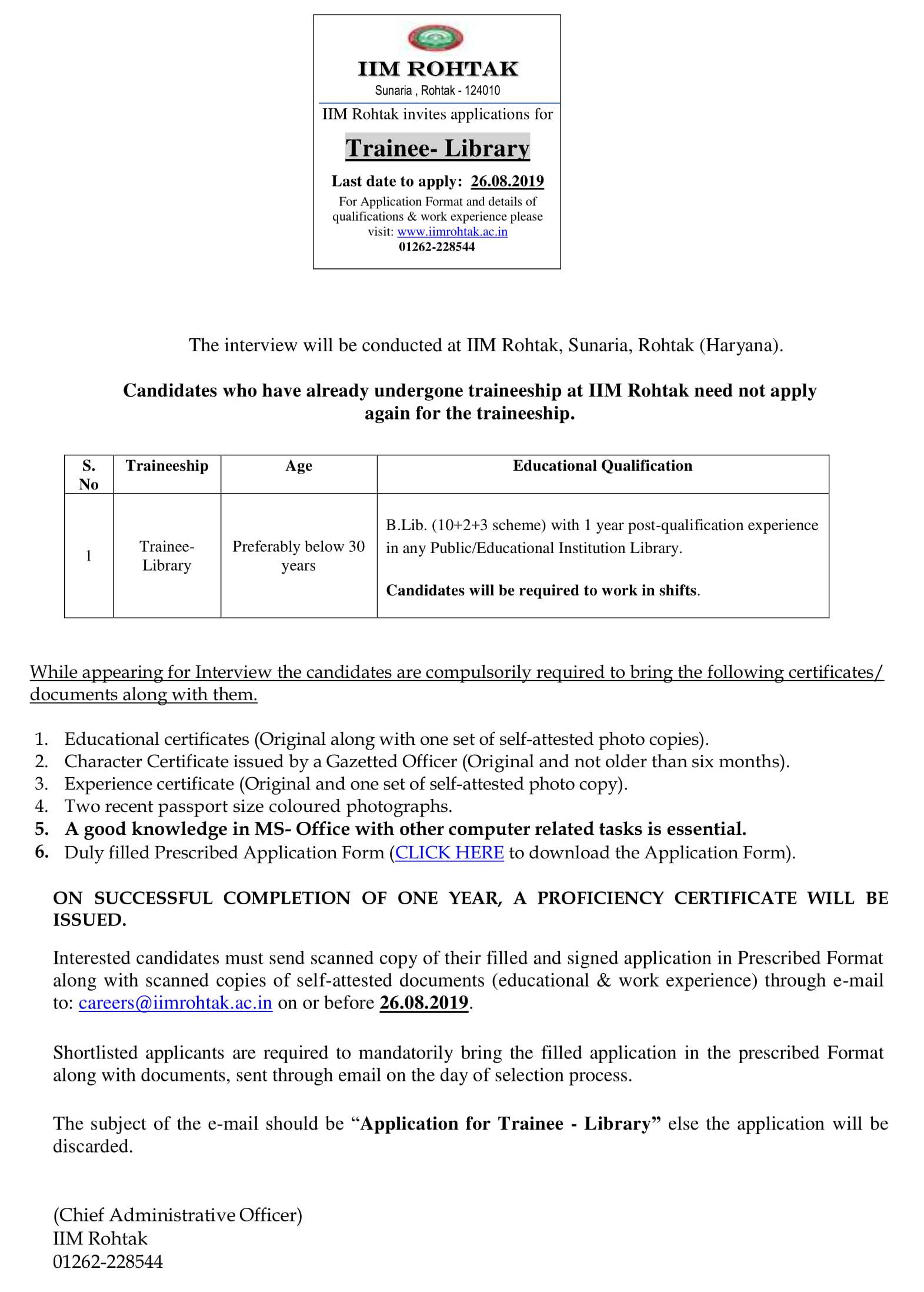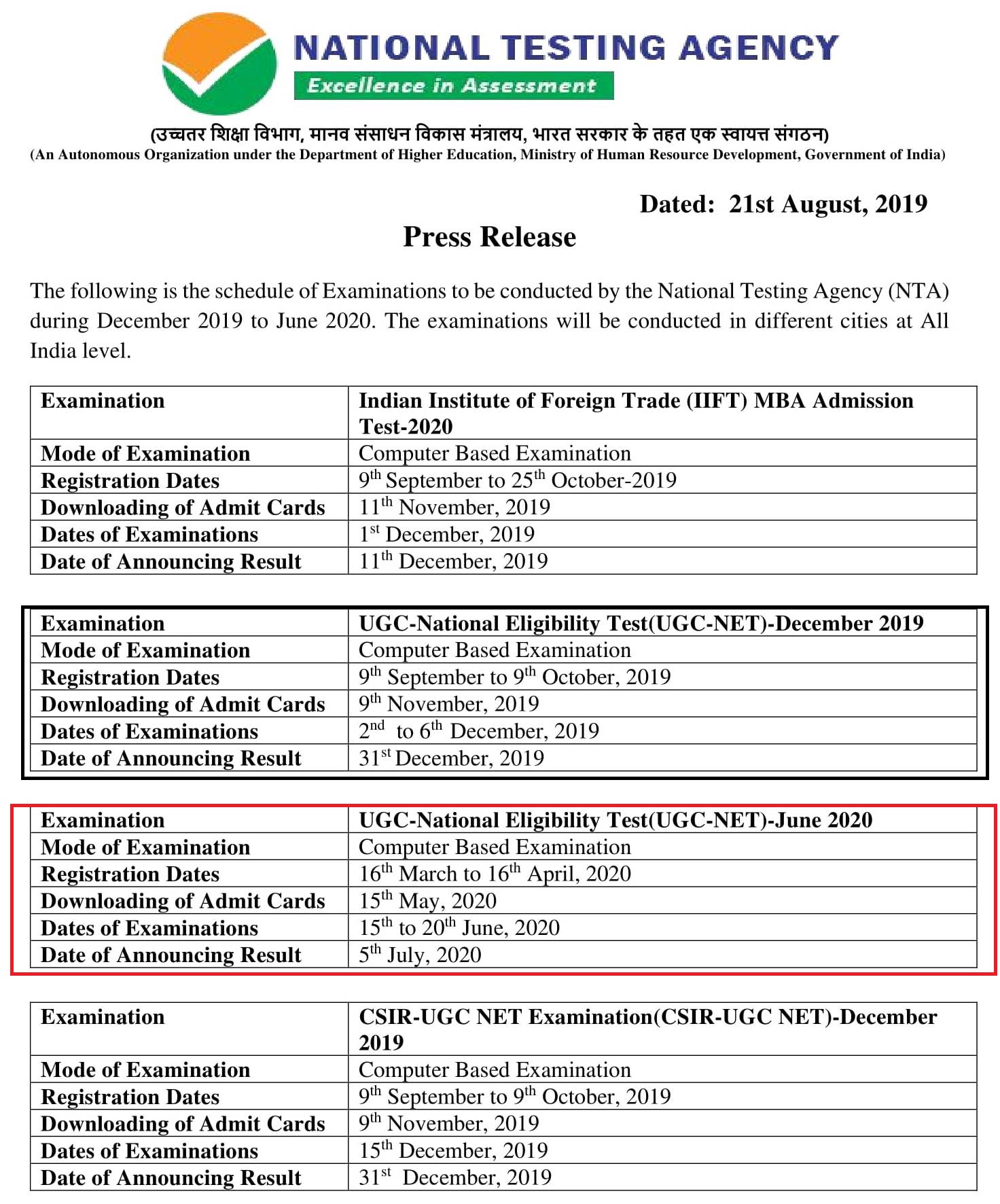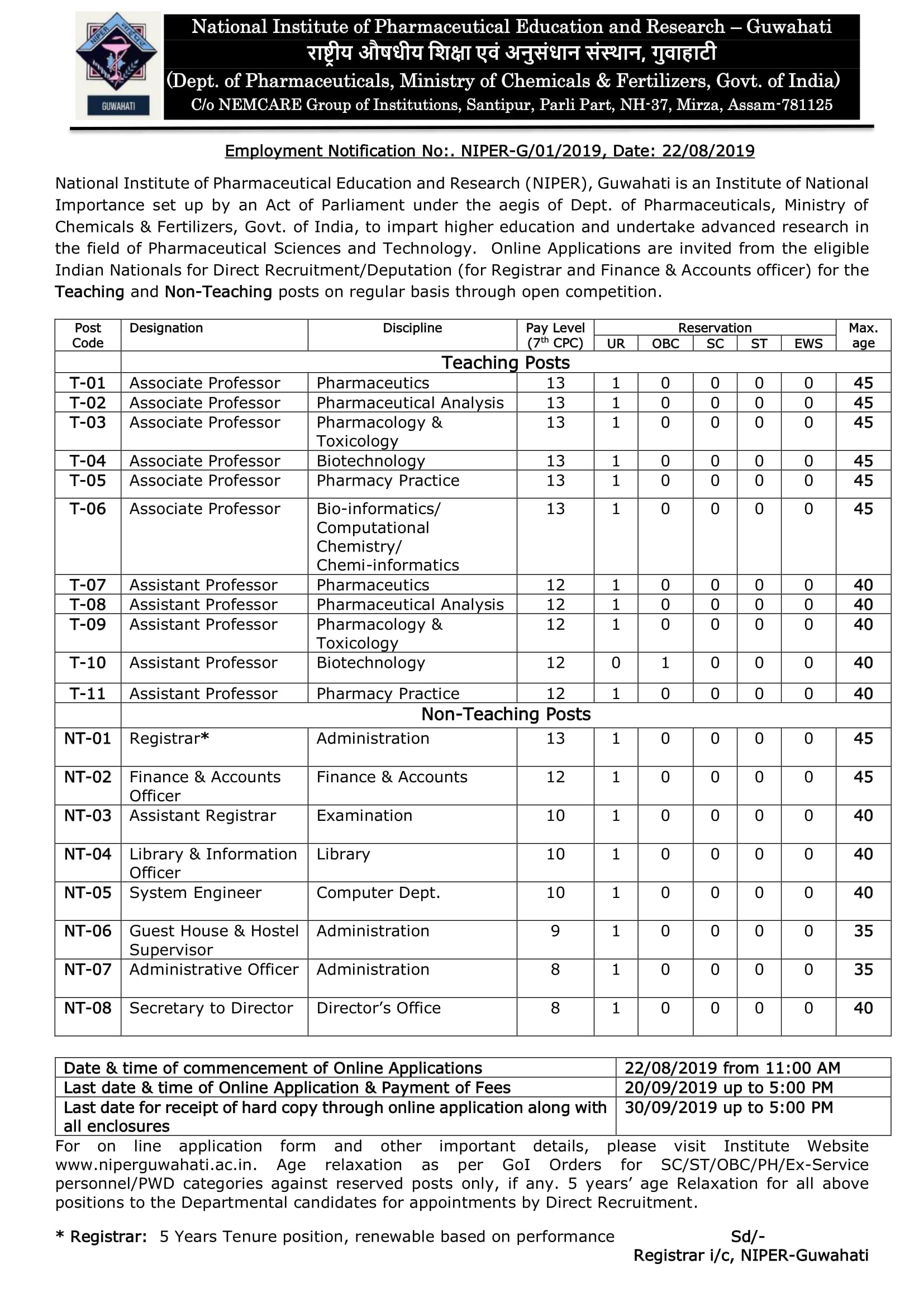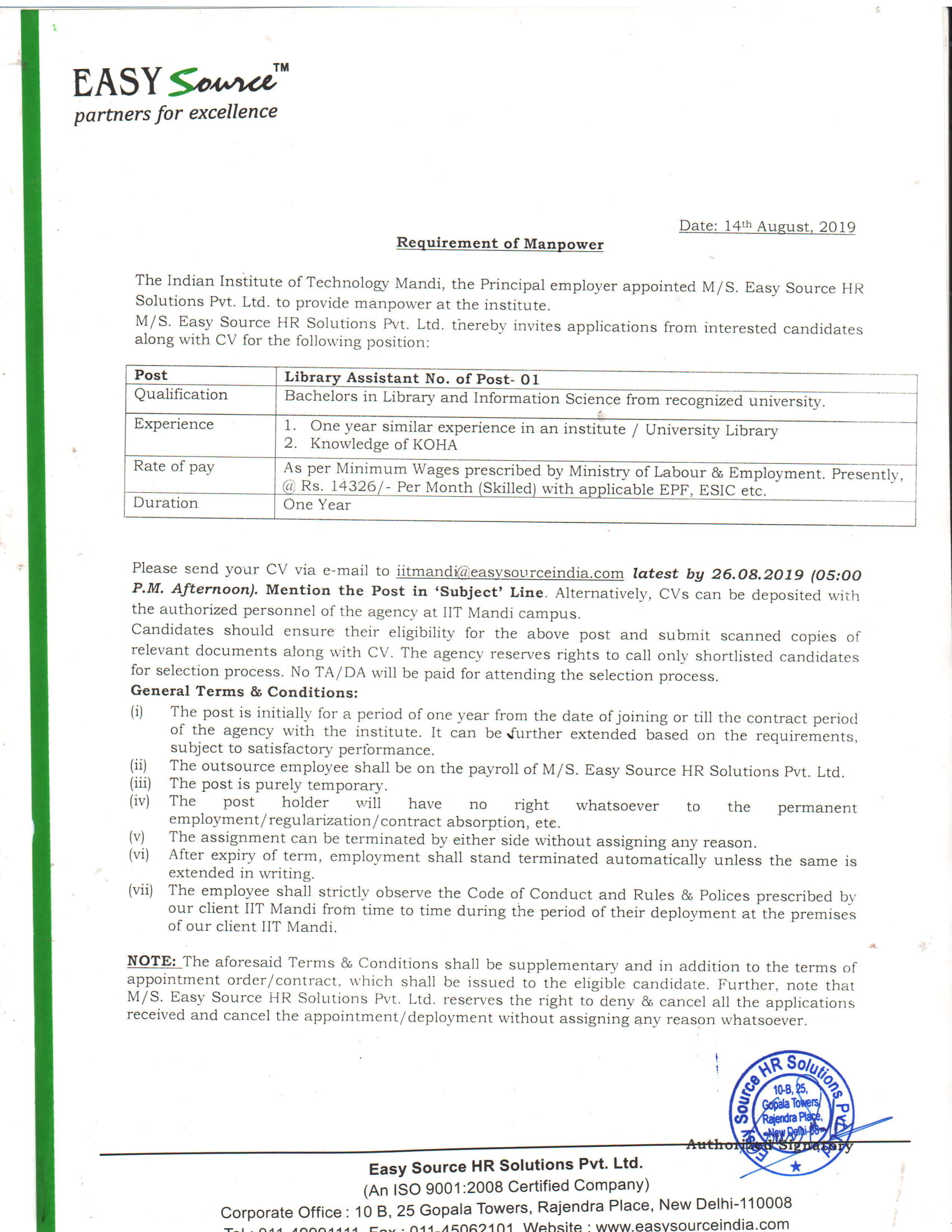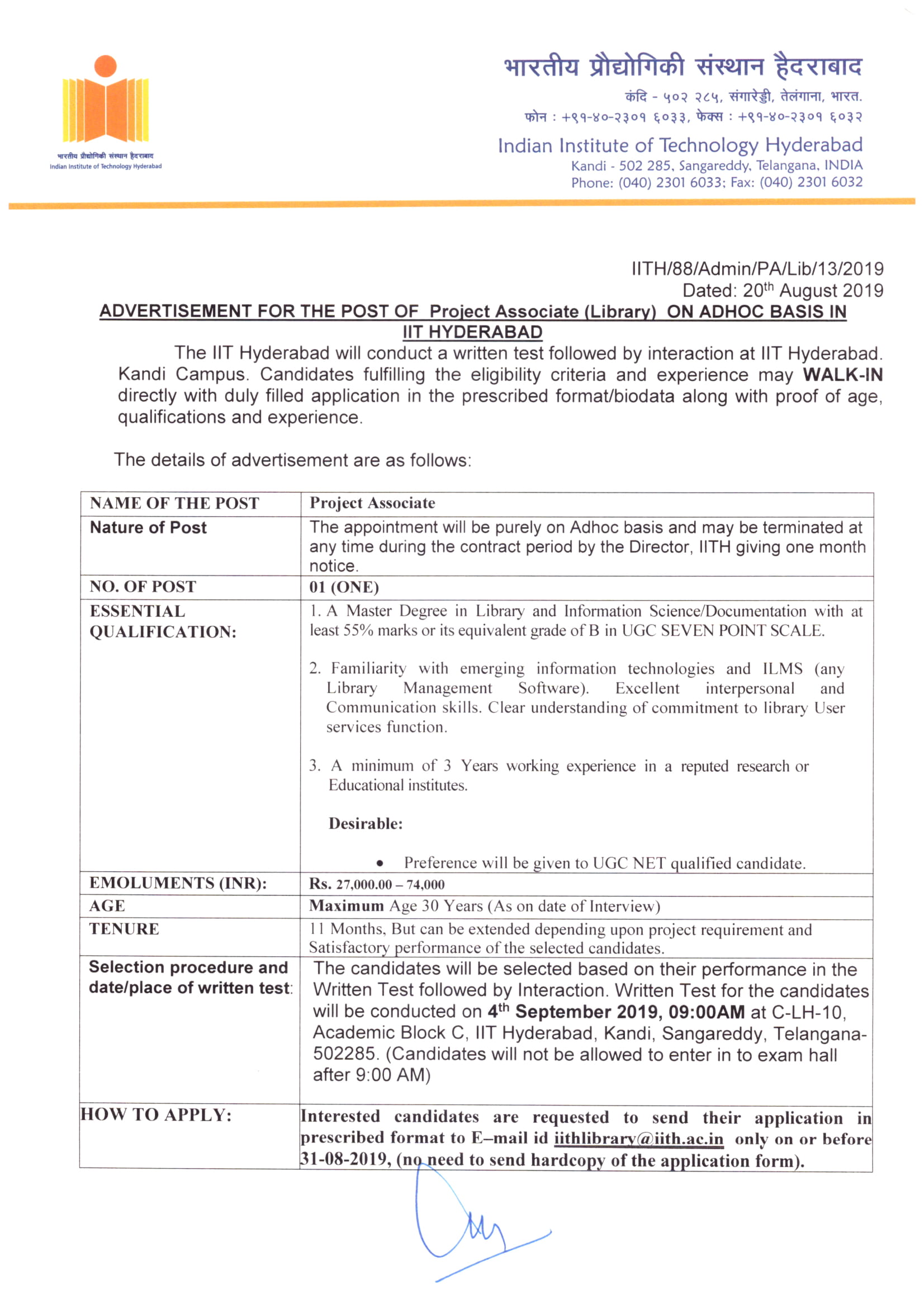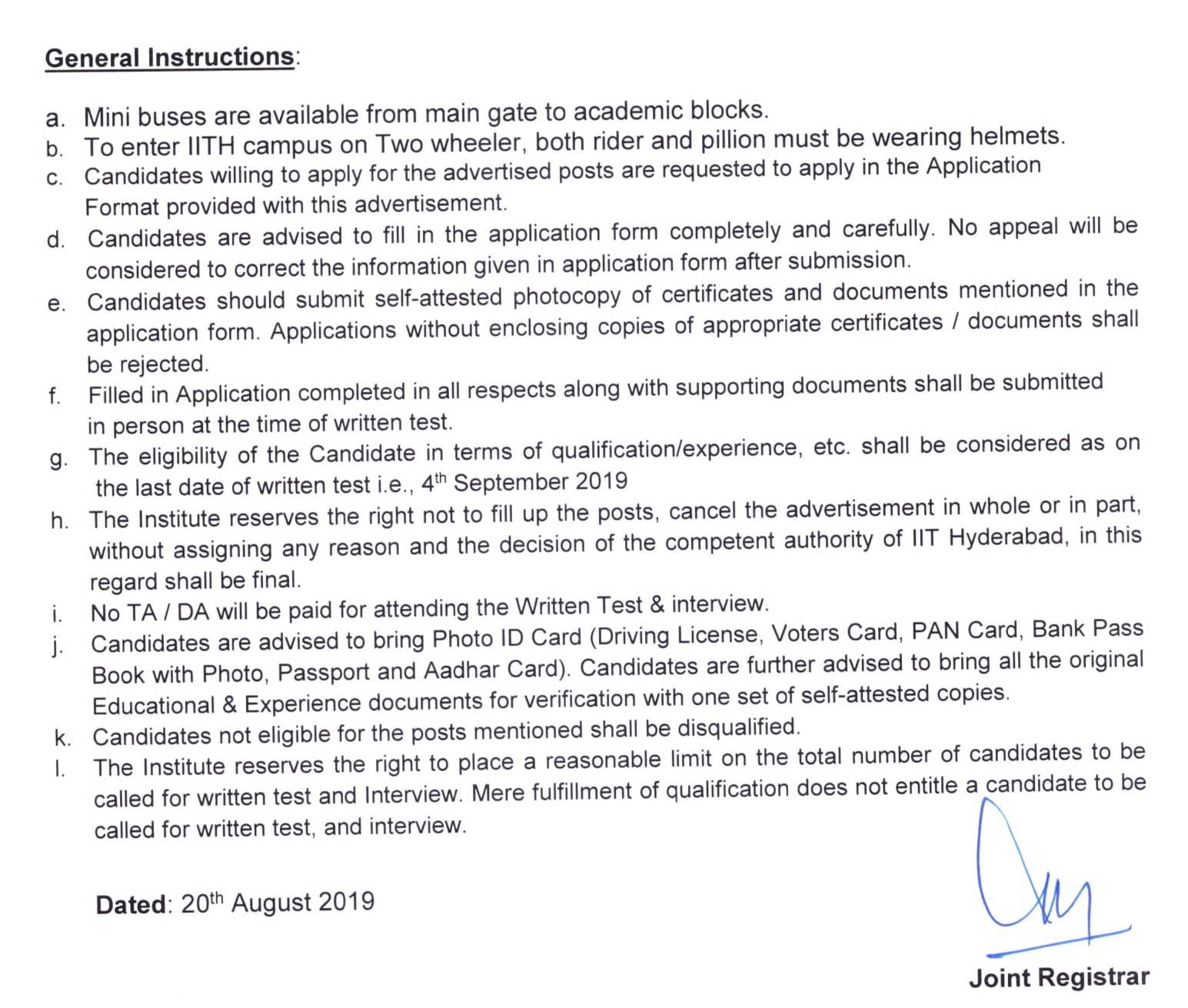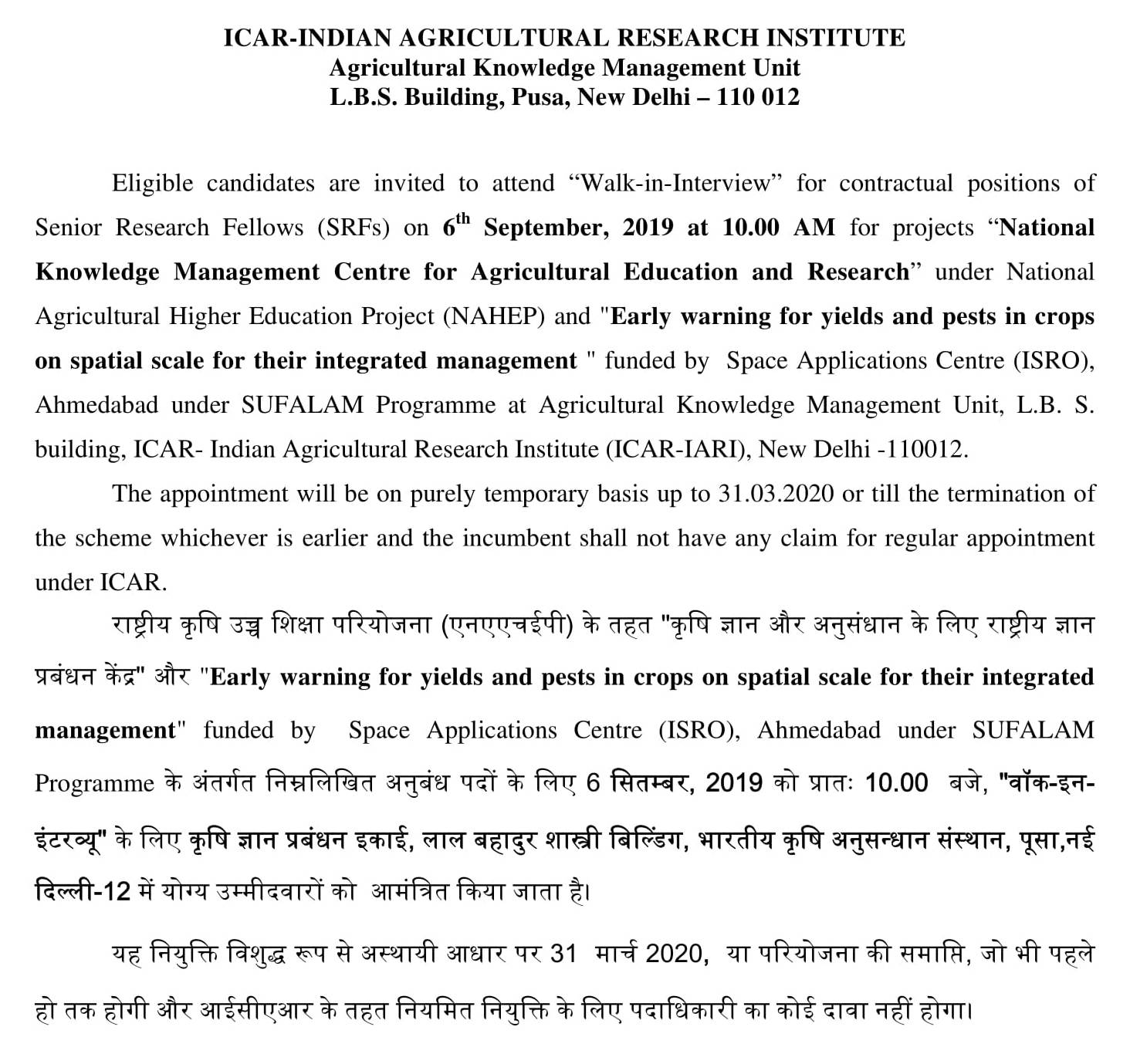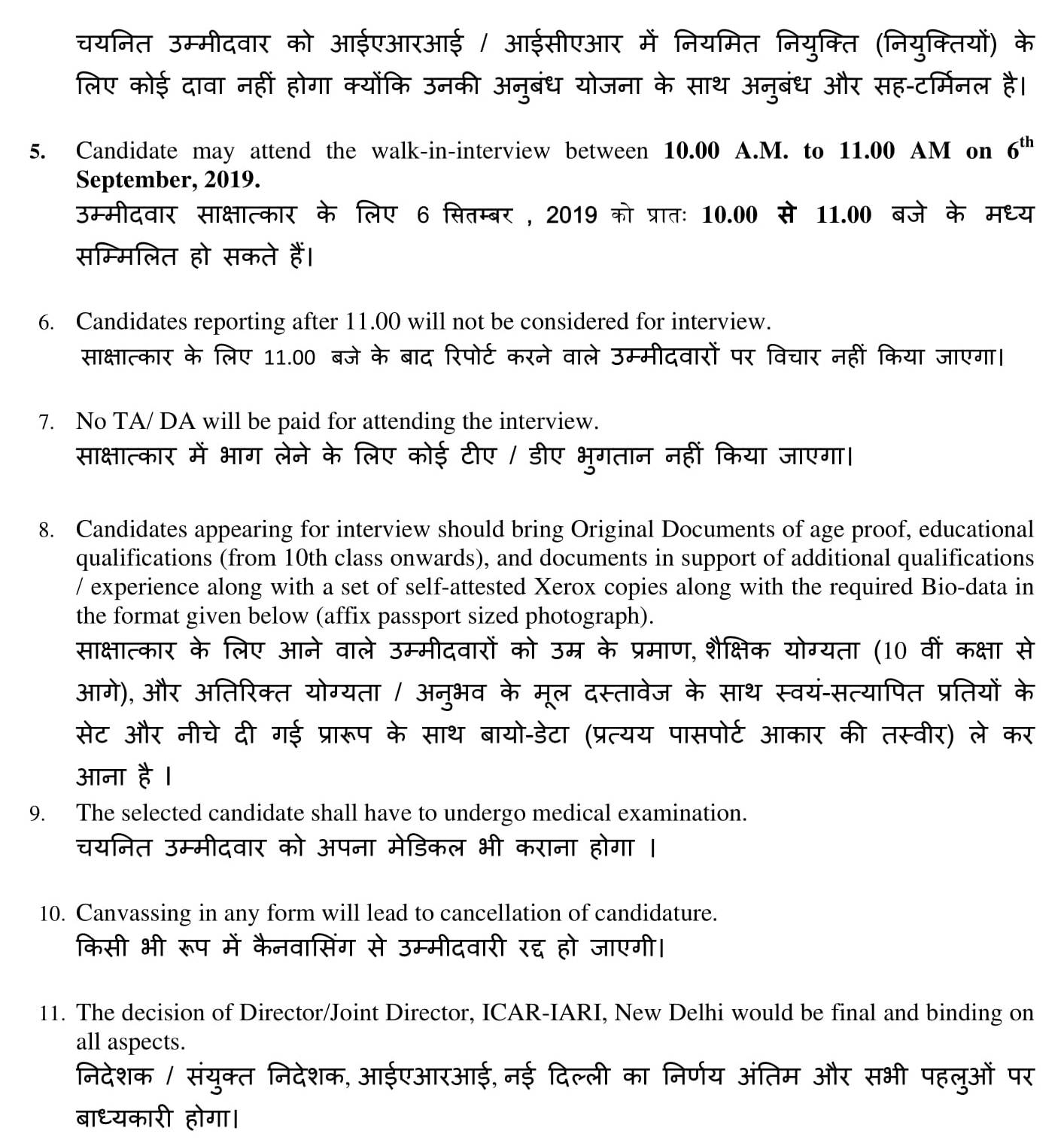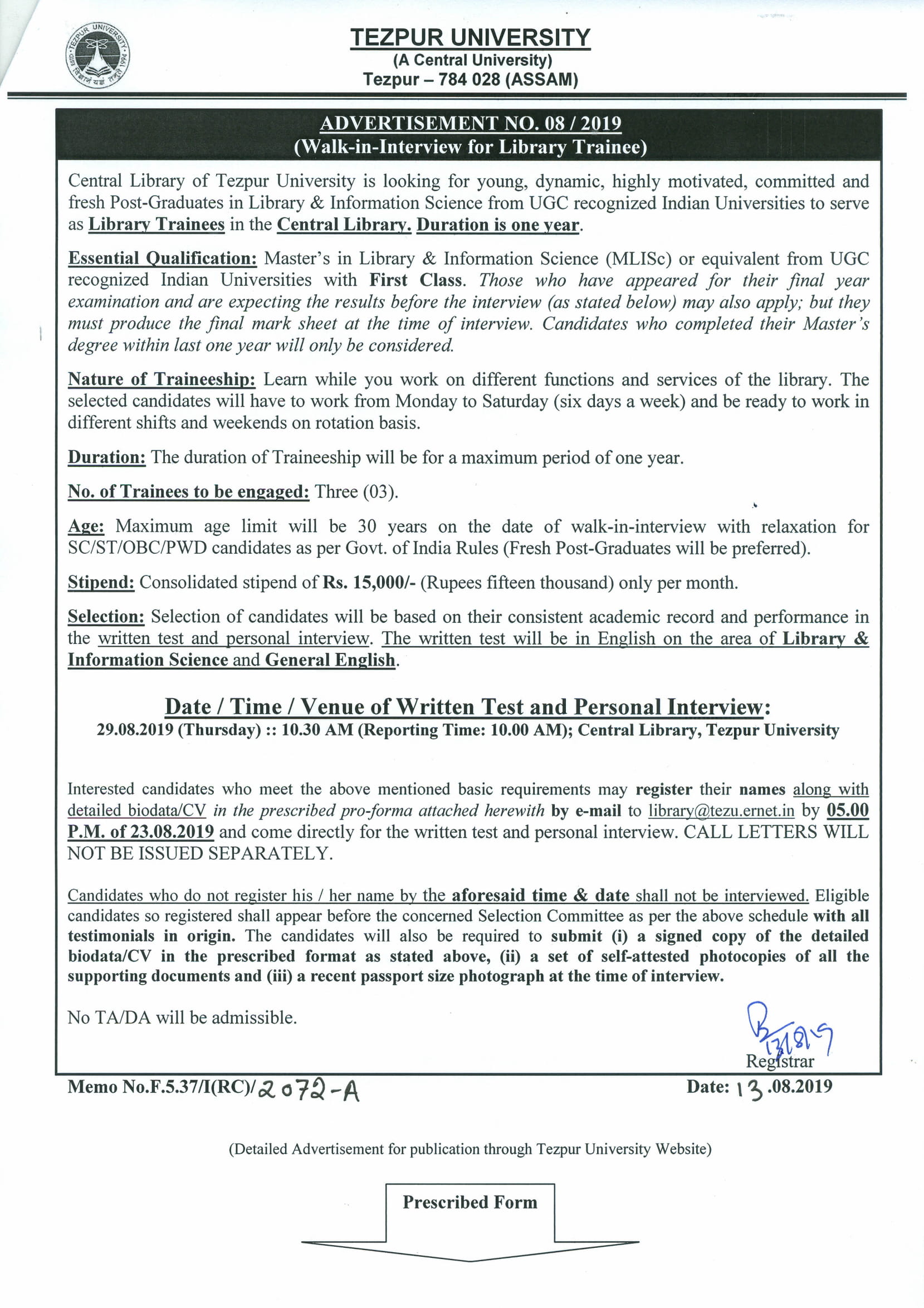Thursday, August 22, 2019
Wednesday, August 21, 2019
Walk in Interview for Asst. Librarian Post at Miles Bronson Residential School, Guwahati : Interview Date 25/08/19

Source: Published in Assam Tribune Classified Part (21/08/2019) Page No. 02
http://www.assamtribune.com/scripts/at.asp?id=aug2119/Page2
Advertisement for Asst. Librarian Post at Yemhi Memorial College, Dimapur : Last Date 31/08/19

Source: Published in Assam Tribune Classified Part (20/08/2019) Page No. 02
http://www.assamtribune.com/scripts/at.asp?id=aug2019/Page2
Tuesday, August 20, 2019
Monday, August 19, 2019
Sunday, August 18, 2019
Saturday, August 17, 2019
Friday, August 16, 2019
Annual Refresher Programme in Teaching in Components and Applications of Internet of Things at SWAYAM
COURSE LAYOUT
Week 1:
Week 1:
Unit I – Basics of IoT
Introduction to Internet of things, Various sensors and sensing techniques. Technological trends in IoT. impact of IoT on society. Review of various IoT application domain including agriculture, healthcare, manufacturing, device management, and vehicle to vehicle communication and wearable computing devices.
Introduction to Internet of things, Various sensors and sensing techniques. Technological trends in IoT. impact of IoT on society. Review of various IoT application domain including agriculture, healthcare, manufacturing, device management, and vehicle to vehicle communication and wearable computing devices.
Week 2:
Unit II – Microcontroller and Interfacing Techniques for IoT Devices
Introduction to IoT and architecture layers, IoT smart devices, Typical embedded computing systems, Introduction to ARM architecture and programming method, Embedded system development: a case study, Introduction to interfacing techniques.
Introduction to IoT and architecture layers, IoT smart devices, Typical embedded computing systems, Introduction to ARM architecture and programming method, Embedded system development: a case study, Introduction to interfacing techniques.
Week 3:
Unit III – IoT Protocols & Security
Networking and basic networking hardware. Networking protocols, Interaction between software and hardware in an IoT device. IoT components and technologies to secure systems and devices.
Various security issues related to the IoT and security architectures. Hardware security threats and security vulnerabilities; protecting physical hardware
Networking and basic networking hardware. Networking protocols, Interaction between software and hardware in an IoT device. IoT components and technologies to secure systems and devices.
Various security issues related to the IoT and security architectures. Hardware security threats and security vulnerabilities; protecting physical hardware
Week 4:
Unit IV – Location Tracking
Introduction to device localization and tracking; different types of localization techniques: time-of-arrival (TOA) based, time-difference-of-arrival (TDOA) based, angle-of-arrival (AOA) based, received signal strength (RSS) based, Radio-Frequency IDentification (RFID) based and fingerprinting based; Monte-Carlo tracking; Kalman filter based tracking; Cramer-Rao lower bound (CRLB) for device location estimator; Device diversity/heterogeneity issue in IoT networks.
Introduction to device localization and tracking; different types of localization techniques: time-of-arrival (TOA) based, time-difference-of-arrival (TDOA) based, angle-of-arrival (AOA) based, received signal strength (RSS) based, Radio-Frequency IDentification (RFID) based and fingerprinting based; Monte-Carlo tracking; Kalman filter based tracking; Cramer-Rao lower bound (CRLB) for device location estimator; Device diversity/heterogeneity issue in IoT networks.
Week 5:
Unit V – Deep learning for IoT
This topic will focus how to build good model from the past data so as to predict correctly when the system is provided with a data-point. In this course mostly, supervised learning will be considered. Basics of neural network, activation functions, back-propagation, etc. will be covered. At the end some of the challenges in the context of IoT will be mentioned.
This topic will focus how to build good model from the past data so as to predict correctly when the system is provided with a data-point. In this course mostly, supervised learning will be considered. Basics of neural network, activation functions, back-propagation, etc. will be covered. At the end some of the challenges in the context of IoT will be mentioned.
Week 6:
Unit VI - IoT Applications:
Smart grid: Introduction to smart grid, Integration of IoT into smart grid, Standardization activities for IoT aided smart grid, Applications of IoT aided smart grid, Architectures for IoT sided smart grid, Prototypes, Applications of big data and cloud computing, Open Issues and challenges.
Smart grid: Introduction to smart grid, Integration of IoT into smart grid, Standardization activities for IoT aided smart grid, Applications of IoT aided smart grid, Architectures for IoT sided smart grid, Prototypes, Applications of big data and cloud computing, Open Issues and challenges.
Week 7:
Unit VI - IoT Applications:
IoT-based Smart Home and Nano-grid Monitoring System
Sensor-Controller Coordination of a DC Microgrid in IoT Platform, Cyber physical system, dc microgrid, dc–dc power converter, distributed energy generator, sensor control and controller design. Low Cost DC Nano-grid with Smart Remote Monitoring Unit, DC-DC converter modeling, closed loop control, placement of IoT devices, sensors, micro grid, solar energy, low cost communication system design.
Introduction, objective, components of home monitoring system, control and management, Zigbee, Wireless Sensor Network (WSN), Internet of Things (IoT).
IoT-based Smart Home and Nano-grid Monitoring System
Sensor-Controller Coordination of a DC Microgrid in IoT Platform, Cyber physical system, dc microgrid, dc–dc power converter, distributed energy generator, sensor control and controller design. Low Cost DC Nano-grid with Smart Remote Monitoring Unit, DC-DC converter modeling, closed loop control, placement of IoT devices, sensors, micro grid, solar energy, low cost communication system design.
Introduction, objective, components of home monitoring system, control and management, Zigbee, Wireless Sensor Network (WSN), Internet of Things (IoT).
Week 8:
Unit VI - IoT Applications:
Internet of Robotic Things (IoRT): Introduction to stationary and mobile robots; Brief introduction to localization, mapping, planning, and control of robotic systems; Introduction to cloud-enabled robotics; Applications of IoT in robotics; Architectures for IoRT; Examples and case studies; Open issues and challenges.
Internet of Robotic Things (IoRT): Introduction to stationary and mobile robots; Brief introduction to localization, mapping, planning, and control of robotic systems; Introduction to cloud-enabled robotics; Applications of IoT in robotics; Architectures for IoRT; Examples and case studies; Open issues and challenges.
SUMMARY
Course Status : Upcoming
Course Type : Core
Duration : 12 weeks
Start Date : 01 Sep 2019
End Date : 31 Dec 2019
Exam Date :
Category :
Annual Refresher Programme in Teaching (ARPIT)
Level : Postgraduate
This is an AICTE approved FDP course
Source:
https://swayam.gov.in/nd2_arp19_ap52/preview
Course Status : Upcoming
Course Type : Core
Duration : 12 weeks
Start Date : 01 Sep 2019
End Date : 31 Dec 2019
Exam Date :
Category :
Annual Refresher Programme in Teaching (ARPIT)
Level : Postgraduate
This is an AICTE approved FDP course
Source:
https://swayam.gov.in/nd2_arp19_ap52/preview
Annual Refresher Programme in Teaching of ETTLIS at SWAYAM : Start Date 01/09/19
COURSE LAYOUT
It is a course of 40 hours, i.e. 20 hours of e-content and 20 hours of video content. At your time, place and convenience. You need to devote just 2 hours a day for five days in a week or just 8 hours a week. It is flexible course. We need to complete 40 hours in two to three months’ time. It will be a blend of e-text, self-check exercises, tasks, activities, audio and video content, assignments with continuous and term end evaluation. The most important parts of the course, is, Discussion Forum, here we all can discuss, comment, suggest and empower ourselves with the help of the discussion forum. There will be a list of resources for further studies. There is a group of enthusiastic techno-savvy experts invited from across the country to support the course.
It is a course of 40 hours, i.e. 20 hours of e-content and 20 hours of video content. At your time, place and convenience. You need to devote just 2 hours a day for five days in a week or just 8 hours a week. It is flexible course. We need to complete 40 hours in two to three months’ time. It will be a blend of e-text, self-check exercises, tasks, activities, audio and video content, assignments with continuous and term end evaluation. The most important parts of the course, is, Discussion Forum, here we all can discuss, comment, suggest and empower ourselves with the help of the discussion forum. There will be a list of resources for further studies. There is a group of enthusiastic techno-savvy experts invited from across the country to support the course.
Week 1: Library and Information Science Profession: Trends & Issues
Transformation of Library and Information Science Products & Services
Week 2: Discovering New Competencies for LIS Professionals
Discovering new ways of resources, products and services for providing service with ease of access
Week 3: E-Resources and Consortia Management for Library and Informational Profession
eBooks: Issues, Challenges, Procurement Policies and Procedures
Emerging Trends in Copyright for Online Contents
Week 4: E-Resource Management (ERM): Softwares, Procurement, Practices, Usage and Challenges
Collection Development and Technical Processing Management using Automation Software
Week 5: RFID implementation in Libraries
QR code and Useful applications in Libraries
Week 6: Web 2.0/3.0 applications and their role in Library Services
Cloud Computing and Library Services
Week 7: Overview of Design and Development of Digital Libraries using Open Source Softwares
Content Management
Institutional Repository and ETDs. Digitization, Digital Preservation and Data Curation
Week 8: Internet of Things for Libraries
Crowd sourcing and Crowd funding with special reference to Libraries
Week 9: Knowledge Management and its application in Libraries
Web Ontologies and Taxonomies
Week 10: Data and Metadata
Big data and Data visualization
Week 11: Open Access Scholarly Communication
Open Licensing
Week 12: Federated Searching and Discovery Services
Artificial Intelligence, Machine Learning, Semantics and Library Apps
Week 13: Library and Information Science Research: Trends & Issues
Plagiarism and Academic Integrity in Academics & Career Advancements
Week 14: Maximizing Visibility of Research Outputs
Faculty and Institute Profiling Systems with special reference to IRINS
Week 15: Reference Management
E-learning and MOOCs
Week 16: Marketing of Library Products and Services
Libraries and Learning Spaces
Transformation of Library and Information Science Products & Services
Week 2: Discovering New Competencies for LIS Professionals
Discovering new ways of resources, products and services for providing service with ease of access
Week 3: E-Resources and Consortia Management for Library and Informational Profession
eBooks: Issues, Challenges, Procurement Policies and Procedures
Emerging Trends in Copyright for Online Contents
Week 4: E-Resource Management (ERM): Softwares, Procurement, Practices, Usage and Challenges
Collection Development and Technical Processing Management using Automation Software
Week 5: RFID implementation in Libraries
QR code and Useful applications in Libraries
Week 6: Web 2.0/3.0 applications and their role in Library Services
Cloud Computing and Library Services
Week 7: Overview of Design and Development of Digital Libraries using Open Source Softwares
Content Management
Institutional Repository and ETDs. Digitization, Digital Preservation and Data Curation
Week 8: Internet of Things for Libraries
Crowd sourcing and Crowd funding with special reference to Libraries
Week 9: Knowledge Management and its application in Libraries
Web Ontologies and Taxonomies
Week 10: Data and Metadata
Big data and Data visualization
Week 11: Open Access Scholarly Communication
Open Licensing
Week 12: Federated Searching and Discovery Services
Artificial Intelligence, Machine Learning, Semantics and Library Apps
Week 13: Library and Information Science Research: Trends & Issues
Plagiarism and Academic Integrity in Academics & Career Advancements
Week 14: Maximizing Visibility of Research Outputs
Faculty and Institute Profiling Systems with special reference to IRINS
Week 15: Reference Management
E-learning and MOOCs
Week 16: Marketing of Library Products and Services
Libraries and Learning Spaces
SUMMARY
Course Status : Upcoming
Course Type : Core
Duration : 16 weeks
Start Date : 01 Sep 2019
End Date : 31 Dec 2019
Exam Date :
Category :
Annual Refresher Programme in Teaching (ARPIT)
Level : Postgraduate
This is an AICTE approved FDP course
Source:
https://swayam.gov.in/nd2_arp19_ap78/preview
Course Status : Upcoming
Course Type : Core
Duration : 16 weeks
Start Date : 01 Sep 2019
End Date : 31 Dec 2019
Exam Date :
Category :
Annual Refresher Programme in Teaching (ARPIT)
Level : Postgraduate
This is an AICTE approved FDP course
Source:
https://swayam.gov.in/nd2_arp19_ap78/preview
Thursday, August 15, 2019
Advertisement for Librarian Post at Silchar Collegiate School, Silchar : Last Date 20/09/19

Source: Published in Dainik Jugasankha Page 02 (10-08-2019)
https://dainikjugasankha.in/edition/silchar/?ar_date=10-08-2019#page2

